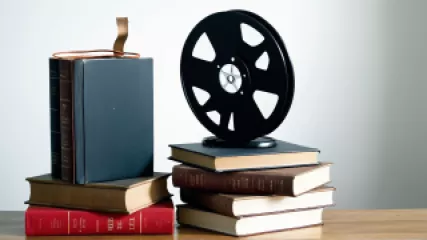Exploring the Psychology of Belief Through Literature and Film
Belief is a powerful force that shapes our thoughts, actions, and perception of the world. It influences how we interpret information, make decisions, and navigate through life. Understanding the psychology of belief is crucial for personal growth, development, and overall well-being. While scientific research and psychological theories provide valuable insights into this topic, exploring the realm of literature and film can offer a unique perspective on the complexities of belief systems and their impact on individuals and society.
The Power of Storytelling
Human beings are natural storytellers. We use narratives to make sense of our experiences, share knowledge, and convey meaning. Literature and film serve as powerful mediums for storytelling, allowing us to explore the depths of human emotions, motivations, and beliefs. Through captivating characters, engaging plotlines, and compelling themes, these art forms enable us to delve into the psychology of belief in a way that resonates with our own experiences and challenges our preconceived notions.
By immersing ourselves in the world of literature and film, we can gain new insights into the nature of belief and its profound influence on our lives. Whether it's a thought-provoking novel or an impactful movie, the stories we encounter can serve as mirrors that reflect our own beliefs back to us, prompting self-reflection and introspection.
Challenging Assumptions and Expanding Perspectives
One of the most valuable aspects of exploring the psychology of belief through literature and film is the opportunity to challenge our assumptions and expand our perspectives. Often, we are limited by our own belief systems, which can create cognitive biases and narrow-mindedness. By engaging with diverse narratives and exploring different points of view, we can break free from these limitations and develop a more nuanced understanding of the complexities of belief.
Through literature and film, we can encounter characters who hold contrasting beliefs or undergo transformative journeys that challenge their existing belief systems. These narratives encourage us to question our own beliefs, examine their origins, and consider alternative perspectives. By doing so, we open ourselves up to personal growth and the possibility of adopting more flexible and inclusive belief systems.
Lessons from Literature
Literature has long been regarded as a window into the human psyche, offering profound insights into the psychology of belief. From classic novels to contemporary works, authors have explored the intricacies of belief through complex characters and thought-provoking storylines.
In "To Kill a Mockingbird" by Harper Lee, readers are confronted with the destructive power of prejudice and the importance of empathy in challenging deeply ingrained beliefs. The novel prompts us to question societal norms and confront the biases that shape our perceptions of others.
In "1984" by George Orwell, the concept of doublethink highlights the manipulation of beliefs in a dystopian society. Orwell's portrayal of a totalitarian regime serves as a cautionary tale, urging us to critically evaluate the information we receive and resist the imposition of false beliefs.
In "The Alchemist" by Paulo Coelho, the protagonist embarks on a journey of self-discovery, encountering various characters and situations that challenge his beliefs about destiny, purpose, and the pursuit of happiness. Coelho's novel encourages readers to reflect on their own beliefs and embrace the power of personal transformation.
Insights from Film
Film, like literature, offers a visual and immersive experience that can deeply impact our understanding of belief. From thought-provoking documentaries to captivating fictional narratives, movies have the ability to elicit emotional responses and provoke introspection.
In "The Truman Show", the protagonist's realization that his entire life has been a carefully constructed illusion forces viewers to question the influence of media, societal expectations, and the power of belief in shaping our reality. This film prompts us to examine the authenticity of our own beliefs and the extent to which they are influenced by external forces.
In "Eternal Sunshine of the Spotless Mind", the exploration of memory and the erasure of past experiences raises profound questions about the malleability of belief and the impact of our past on our present selves. This thought-provoking film invites viewers to reflect on the role of memory in shaping our beliefs and the potential consequences of altering our personal narratives.
In "Inception", the concept of shared dreaming challenges our understanding of reality and belief. This mind-bending film encourages us to question the nature of our own beliefs and the extent to which they can be manipulated or influenced by external factors.
Applying Lessons to Real Life
While literature and film offer captivating stories and thought-provoking insights, their true value lies in how we apply these lessons to our own lives. Exploring the psychology of belief through literature and film can provide us with a deeper understanding of ourselves and others, allowing us to navigate the complexities of belief systems with greater empathy and open-mindedness.
By critically examining our own beliefs, questioning societal norms, and embracing alternative perspectives, we can foster personal growth and cultivate a more inclusive mindset. Additionally, engaging with narratives that challenge our assumptions can help us develop cognitive flexibility and resilience in the face of conflicting beliefs.
The psychology of belief is a vast and complex field, and literature and film offer valuable tools for exploring its intricacies. By immersing ourselves in captivating stories, we can gain insights into the nature of belief, challenge our assumptions, and expand our perspectives. Ultimately, these experiences can empower us to navigate the complexities of belief systems with greater understanding, empathy, and personal growth.






